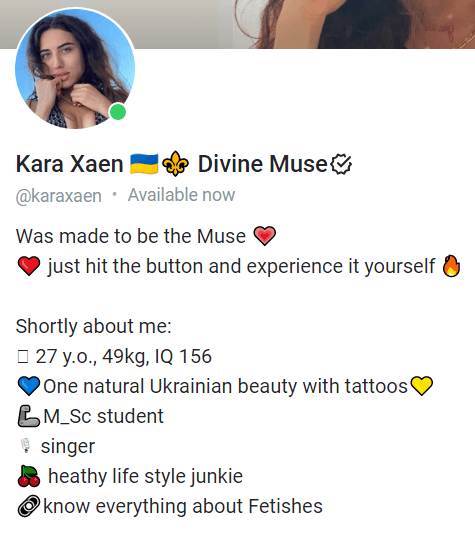Aishah Sofey Leak: What You Need to Know

In recent months, the name Aishah Sofey has surfaced across social media platforms, sparking widespread discussion and debate. The controversy centers around an alleged leak involving personal content, which has raised significant concerns about privacy, digital ethics, and the broader implications of online behavior. This article delves into the key aspects of the Aishah Sofey leak, providing a comprehensive overview of what you need to know.
The Alleged Leak: What Happened?
The Aishah Sofey leak refers to the unauthorized dissemination of private or sensitive material purportedly involving Aishah Sofey, a figure who has gained attention on social media. While details remain unverified, reports suggest that the leak involves explicit or personal content that was shared without consent. The incident has ignited a firestorm of reactions, with many condemning the violation of privacy and others questioning the authenticity of the material.
Privacy in the Digital Age
The leak underscores the vulnerabilities inherent in the digital age. As individuals increasingly share their lives online, the risk of privacy breaches grows exponentially. The Aishah Sofey case serves as a stark reminder of the importance of safeguarding personal information and the potential consequences of its exposure. It also highlights the ethical responsibilities of internet users, who must navigate the fine line between curiosity and respect for privacy.
The Role of Social Media Platforms
Social media platforms play a pivotal role in incidents like these. While they provide spaces for connection and expression, they also serve as conduits for the rapid spread of sensitive content. Critics argue that platforms must do more to prevent the unauthorized sharing of private material, such as implementing stricter content moderation policies and enhancing user privacy settings. The Aishah Sofey leak has reignited debates about the accountability of tech companies in protecting their users.
Legal and Ethical Implications
From a legal standpoint, the unauthorized sharing of private content can constitute a violation of privacy laws in many jurisdictions. Depending on the nature of the material and the circumstances of its dissemination, those responsible could face serious legal consequences, including fines or imprisonment. Ethically, the leak raises questions about consent, respect, and the broader societal attitudes toward privacy and digital rights.
Impact on Aishah Sofey
The leak has undoubtedly had a profound impact on Aishah Sofey, both personally and professionally. Beyond the immediate emotional toll, such incidents can lead to long-term consequences, including reputational damage and mental health challenges. The public nature of the controversy has also placed Aishah Sofey in the spotlight, exposing her to both support and scrutiny from a global audience.
Public Reaction and Support
The public response to the Aishah Sofey leak has been mixed. While some have expressed sympathy and solidarity, others have engaged in victim-blaming or sensationalism. Advocacy groups and individuals have called for greater empathy and a focus on the underlying issues of privacy and consent. The incident has also sparked conversations about the treatment of women and marginalized individuals in the digital space, where they are often disproportionately targeted.
Preventing Future Incidents
To prevent similar incidents, individuals must take proactive steps to protect their digital privacy. This includes using strong passwords, enabling two-factor authentication, and being cautious about the content they share online. Additionally, there is a need for collective action, such as advocating for stronger privacy laws and holding platforms accountable for their role in preventing leaks.
Key Takeaway: The Aishah Sofey leak serves as a critical reminder of the importance of digital privacy and the ethical responsibilities of internet users. It highlights the need for stronger protections, both legally and technologically, to safeguard individuals from unauthorized exposure of their private lives.
FAQ Section
What exactly was leaked in the Aishah Sofey incident?
+The exact nature of the leaked content remains unverified, but reports suggest it involves private or sensitive material shared without consent. Due to the lack of official confirmation, details should be treated with caution.
What legal actions can be taken in cases like the Aishah Sofey leak?
+Legal actions can include filing charges for privacy violations, seeking injunctions to stop the spread of the content, and pursuing damages for emotional distress or reputational harm. The specific legal recourse depends on the jurisdiction and the details of the case.
How can individuals protect themselves from similar leaks?
+Individuals can protect themselves by using strong, unique passwords, enabling two-factor authentication, being cautious about what they share online, and regularly reviewing their privacy settings on social media platforms.
What role do social media platforms play in preventing leaks?
+Social media platforms can prevent leaks by implementing stricter content moderation policies, enhancing user privacy settings, and providing tools for users to report and remove unauthorized content quickly.
How can society support victims of privacy leaks like Aishah Sofey?
+Society can support victims by offering empathy, avoiding victim-blaming, advocating for stronger privacy laws, and promoting digital literacy to prevent future incidents.
Conclusion
The Aishah Sofey leak is more than just a viral controversy; it is a reflection of deeper issues surrounding privacy, ethics, and digital responsibility. As we navigate an increasingly interconnected world, it is crucial to prioritize respect, consent, and protection for all individuals. By learning from incidents like these, we can work toward creating a safer and more ethical digital environment for everyone.


